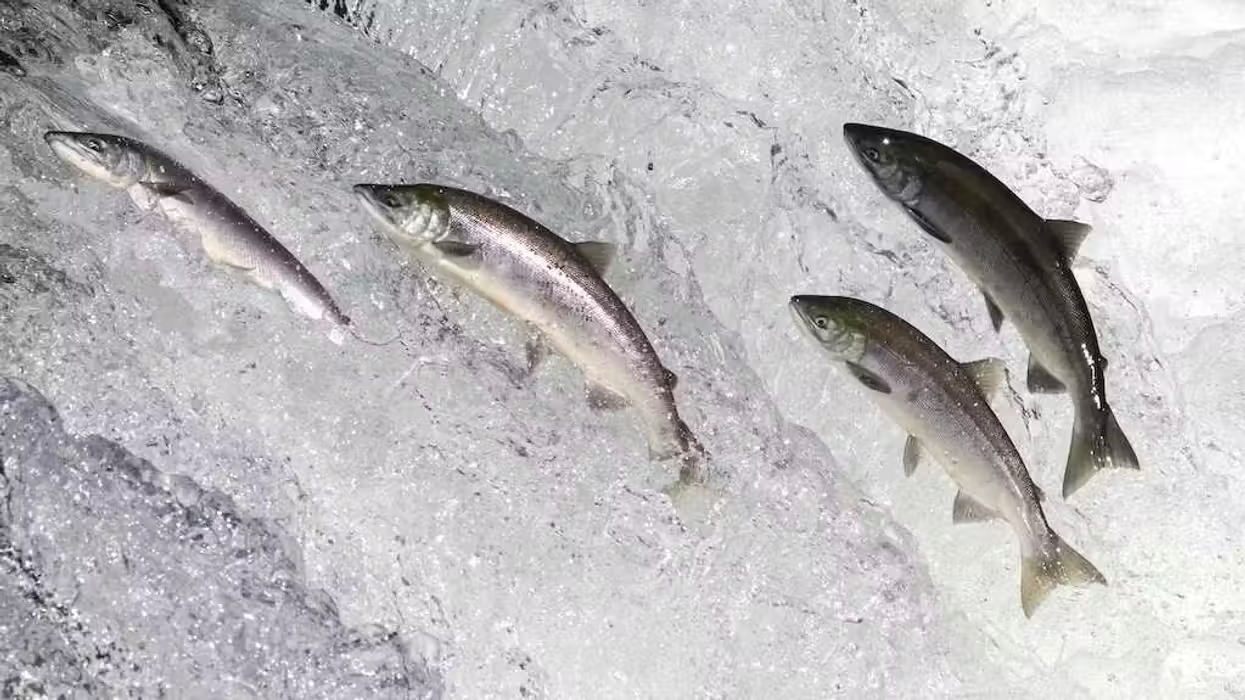
BlueBarronPhoto via iStock/Getty Images

Repackaged slogans and polished pulpits can’t hide a polluted message. When churches sip the world’s water, the world dies of thirst.
On most days, the creek that runs behind our home in Montana looks like something out of a painting. The water tumbles over slick stones, swirls beneath the wooden bridge, and flashes like glass in the sunlight as it winds through the trees.
On hot afternoons, I take off my boots and stand in it awhile, letting the cold mountain water swirl around my feet. Even in August, it stays clear and shockingly cold — refreshing on hot, dusty feet. It looks so pure and inviting that you’d think you could cup your hands and drink from it.
The world’s water might soothe for a moment, but it can’t sustain. Only Christ, the living water, can cleanse, restore, and refresh a parched heart.
Yet I know better.
While helping a rancher move some cattle across the property, a few of them wandered down into that same creek. They lingered there, swishing tails and doing what cows do. The water still looked clear from a distance, but you certainly wouldn’t drink from it. Even a Supreme Court justice wouldn’t need a biologist to figure that out.
The water in that creek started high in the mountains, clean and cold. It was once pure, but animals do what animals do. People, though, take it further. We pollute on purpose. That’s not instinct; that’s sin.
We talk about free will, and we have it. But left to ourselves, we use it to wreck what was good. The culture isn’t just wandering into the water; it’s content to poison it, and sinners seem to care less about a polluted stream than cows do.
We’ve all heard that politics flows downstream from culture. But if you trace that current far enough, you’ll find that culture flows downstream from belief. Whatever people worship, they eventually legislate into law.
Today, we have ceased worshipping God. Instead, we bow before slogans, systems, and grievances that mollify us rather than giving worship to the one to whom it is due. From a distance, it all looks good — flowing with energy, language, and even a sense of virtue. But somewhere upstream, something has wandered into the water — or been poured into it.
Too often, the church is wading downstream, cup in hand, trying to stay “relevant” while drinking what has already been polluted. The poison is sin itself, the moral waste of self-worship that seeps in until it becomes part of the current.
When the church starts drinking downstream, the songs continue, the sermons sound familiar, and the branding shines. But the taste changes. Conviction weakens, holiness becomes optional, and relevance becomes everything. We echo the world’s vocabulary of identity and justice without the foundation of repentance and redemption. The message gets muddied, and we don’t even notice the shift.
And when that happens, the thirstiest suffer first. Those are the ones who come to church desperate for something real.
I’ve spent 40 years as a caregiver, and I’ve learned what real thirst feels like. When you’ve poured yourself out for years, almost any water looks good. You pray for strength, for truth, for something steady, and too often what comes back sounds like marketing. You sit in church and hear, “Claim your victory,” “Speak life,” or, “Step into your blessing,” and you wonder if anyone sees the wreckage you live with. Then, from another pulpit, you hear, “God understands,” “It’s not that bad,” or, “Everyone struggles.”
It sounds compassionate, but it isn’t. It’s corrosion.
The first slick of contamination began with the serpent questioning the Word of God, and all too many pulpits echo that same hiss today. They downplay sin, soften the edges, and serve up messages that keep people comfortable yet captive. They offer sympathy instead of repentance. That’s not grace; that’s decay.
Ornate and large pulpits don’t necessarily mean clean water. Visibility isn’t the same as vision. The purity of the message isn’t measured by the size of the platform of the one delivering it but by how faithfully it points upstream to Christ Himself.
Truth, the real kind, usually starts with one hard word: repent. It’s upstream, and it’s not easy to get there. But that’s where the water runs clean. Downstream, you’ll only find a little contamination, a little compromise, a little manure, and just enough to make you sick.
RELATED: Scripture or slogans — you have to choose

I’ve tested the various platitudes and slogans in the emergency room, ICU, and dark watches of the night more times than I can count. None of them hold up.
Here’s what does.
Only one water stays pure no matter who steps in it. It’s the same water that met a Samaritan woman at a well. It’s the same water Isaiah promised when he wrote, “With joy you will draw water from the wells of salvation.” That’s the invitation — not just to the church, but to every soul that’s dry and staggering: Walk upstream.
When we drink deeply from that pure spring, holiness stops feeling like a burden and starts feeling like oxygen. It gives clarity instead of confusion, courage instead of compromise.
That’s the call to the church and to every weary heart. Don’t drink what the world has trampled. Don’t settle for water that only looks clean from a distance. Polluted streams can’t quench the thirst of thirsty people.
The world’s water might soothe for a moment, even cool our weary feet, but it can’t sustain us. Only Christ, the living water, can cleanse, restore, and refresh a parched heart.
So go upstream. The source is still pure, and it’s still flowing.
Peter Rosenberger